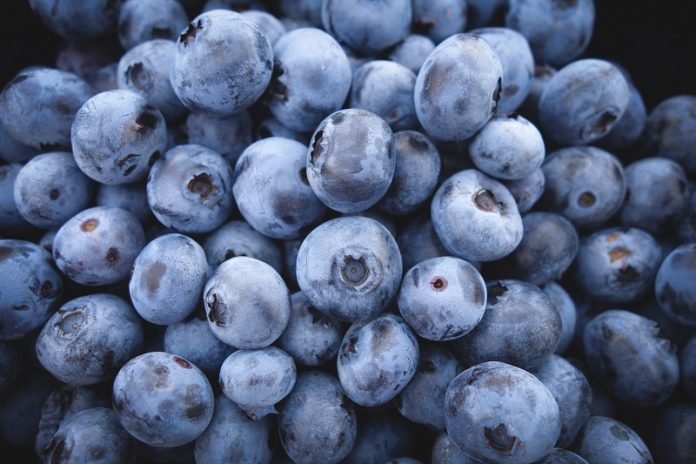
In a study from Colorado State University, scientists found that eating blueberries can lower the risk of heart disease in older women with high blood pressure.
They found eating 22 grams of freeze-dried highbush blueberry powder (equivalent to about 1 cup of fresh blueberries) mixed with water taken daily for 12 weeks improved the function of the inner lining of blood vessels.
Oxidative stress is the imbalance between free radicals and antioxidants in the body and can damage cells and tissues, which promotes endothelial dysfunction and heart disease development.
Previous research has found that polyphenols and polyphenol-rich foods like blueberries can reduce oxidative stress.
In the study, the team tested 43 estrogen-deficient older women aged 45-65 years with elevated blood pressure or stage 1 hypertension.
They used freeze-dried blueberries to retain the polyphenols as much as possible.
The team found increases in blood metabolites that are products of the metabolism of anthocyanins (polyphenols found in blueberries that give them their blue color) and metabolism of polyphenols by the gut microbiome.
They found an improvement in endothelial function which is important for human health, as endothelial dysfunction is linked to heart disease development.
They also found evidence that blueberries improved endothelial function through reductions in oxidative stress in the body.
The key takeaway is that there are benefits to consuming blueberries on a regular basis to help improve heart health.
Foods rich in phytochemicals include many fruits and vegetables, cocoa, chocolate, tea, nuts, legumes, whole grains, and spices. But dark fruits top the list.
If you care about nutrition, please read studies about a vitamin that is critical to cancer prevention, and why vitamin K is so important for older people.
If you care about nutrition, please read studies that vitamin C may help treat heart rhythm problems, and green tea may protect your body as a vaccine.
The research was conducted by Sarah Ardanuy Johnson et al and presented at the International Conference on Polyphenols and Health and.
Copyright © 2022 Knowridge Science Report. All rights reserved.



